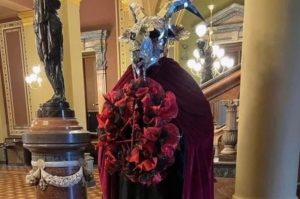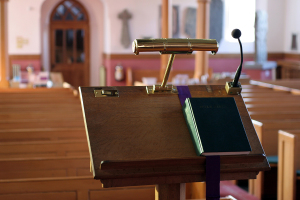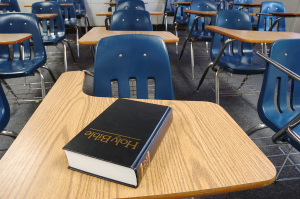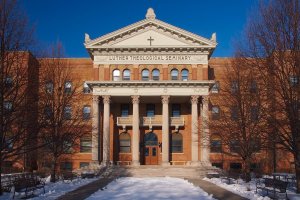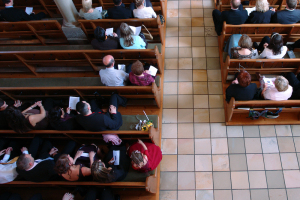Va. Judge Rules Against Breakaway Anglicans in Property Case
Breakaway Anglican congregations in Virginia suffered a blow this week when a Fairfax County Circuit Court judge ruled against letting them keep their church properties.
Judge Randy Bellows ruled on Tuesday in favor of the Episcopal Diocese of Virginia, giving them ownership over the property of seven churches, some of which date back to the 18th century.
While expressing disappointment in the decision, Jim Oakes, spokesperson for the seven Anglican congregations, said in a statement that they will remain steadfast in their effort “to defend the historic Christian faith.”
“Regardless of today’s ruling, we are confident that God is in control, and that He will continue to guide our path,” he added.
Henry Burt, secretary of the Diocese of Virginia, views the court ruling as “very much in the mainline of Virginia and American jurisprudence.”
“The goal has been to return and retain Episcopal property to the Episcopal Church,” he told The Christian Post.
While the diocese considers the decision a success, Jeff Walton of the Institute for Religion and Democracy, sees it as inconsiderate of the congregations that lost.
“Yes, the Episcopal Church is winning buildings but what has this accomplished for them?” Walton told CP in an interview.
“In the case of The Falls Church, well in excess of 2,000 people will be displaced by a continuing Episcopal congregation with an attendance reported as 74 persons.”
The properties The Episcopal Church has gained control of include The Falls Church and Truro Church, both of which were first established during the colonial era and had George Washington serve as a vestryman.
The Rev. John Yates, rector of The Falls Church, said in a statement that the core issue for the breakaway churches is not the physical property but “theological and moral truth and the intellectual integrity of faith in the modern world.”
“Wherever we worship, we remain Anglicans because we cannot compromise our historic faith. Like our spiritual forebears in the Reformation, ‘Here we stand. So help us God. We can do no other.’”
Several Episcopal congregations had voted overwhelmingly in 2006 and 2007 to sever ties with The Episcopal Church – the U.S. arm of Anglicanism – while staying in alignment with the rest of the worldwide Anglican Communion. The breakaway Anglicans believe the U.S. church has abandoned Scripture and traditional Anglicanism.
Eleven congregations were taken to court over the church properties, with four being removed due to either technicalities or through reaching an out-of-court settlement with the diocese.
Judge Randy Bellows initially ruled in favor of the conservative congregations in 2008. However, his ruling was overturned by the Virginia Supreme Court and the case was sent back to Fairfax County.
In the past few weeks, The Episcopal Church’s success in the courts has been seen nationwide in property disputes against conservative congregations leaving over ideological differences.
Last month, the Episcopal Diocese of Georgia won a case for ownership of the historic Christ’s Church in Savannah after the building was vacated in 2007.
Bishop Seabury Church of Groton, Conn., lost its case to the state’s Episcopal Diocese a couple days after Christmas. The congregation hopes to take the case to the Supreme Court.
In Wisconsin, the Episcopal Diocese of Milwaukee won a three-year legal battle against St. Edmund’s Parish, which had been the first congregation to leave The Episcopal Church because of theological differences in the state.
“Everywhere else we have prevailed,” said Burt, noting that the departing congregations seldom succeed in the courts.
Regarding what the diocese intends to do with the buildings, Burt said they have “continuing Episcopal congregations” at four of the churches of the diocese.
As for the others, Burt said that no specific plans were solidified, but that “all the buildings will become tools of mission.”
The diocese is also considering allowing the departing congregations to use the space until they can locate a suitable replacement.
“We are all brothers and sisters in Christ,” said Burt, who added that the diocese was willing help them set up elsewhere “if they decide to let go of this and make plans to move on.”
According to Burt, another reason for a lack of official plans is because of the possibility that the departing congregations will appeal the decision.
“They have the option to appeal and they may do so,” said Burt.
Scott Ward, one of the lawyers for The Falls Church, told CP that a Supreme Court challenge is likely given the results across the country.
“One thing to remember is that in all these cases there is still further legal review,” said Ward, who added that “it’s very right for the U.S. Supreme Court to look into this.”
The seven Anglican congregations are currently members of the Diocese of the Mid-Atlantic, which was established within the Anglican Church in North America. The ACNA is a less than 3-year-old church body that was set up by conservative Anglicans who left The Episcopal Church and the Anglican Church of Canada over their liberal theological direction.















